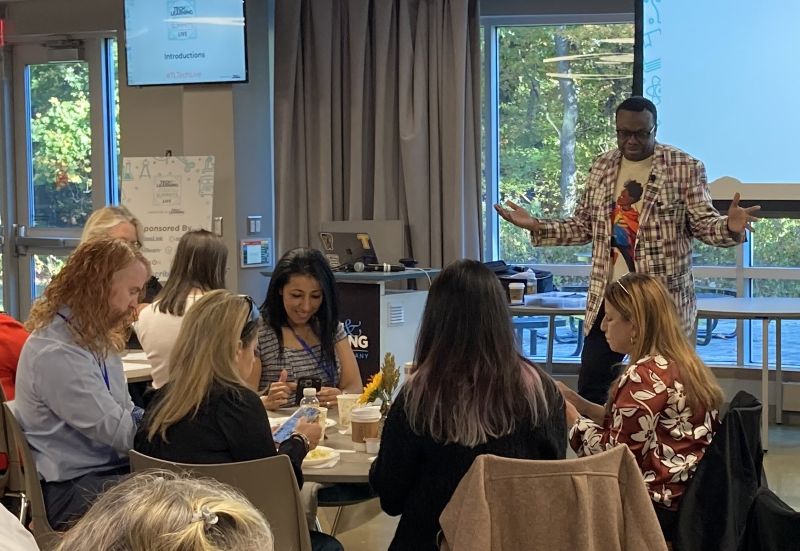Reimagining Learning Spaces To Empower Students
If we want to prepare students for tomorrow, we have to provide access to the tools of today.

Technology’s dizzying rate of evolution is a challenge for education, which often has struggled to keep pace. But it’s critical for educators to embrace technology and create opportunities for their students to do so also.
During the recent Tech & Learning Northeast Regional Leadership Summit at Rutgers University in New Brunswick, New Jersey, event host Dr. Adam Phyall, Director of Professional Learning and Leadership at All4Ed, discussed how to do this by changing your approach to learning spaces so as to empower students with technology and help genuinely prepare for their careers–and the future–they will encounter.
“Future-proofing doesn’t work,” said Phyall, adding that technology is always evolving and even though it’s a challenge to keep up, educators must at least try.
Looking Back But Moving Forward
Using vivid examples of video games, computers, and other technology from the childhoods of attendees (brick phones and Commodore 64s, anyone?), Phyall discussed how each of those now-outdated devices was an emerging technology at one point. He talked about being in high school in 1994 when the internet was first “becoming a thing,” pointing out all the jobs that didn’t exist at that point but subsequently cascaded from it. He then compared that to the sea change that AI and other innovations are driving today, and the related need to ready students for similar yet-to-be-created jobs and innovations.
Obviously, one key to effectively preparing students for the future is providing opportunities to explore these new technologies. “Do we have spaces in our schools where students can see emerging tech?” asked Phyall. “Or are we just teaching the Civil War?” While acknowledging that yes, history does need to be taught as part of a basic knowledge base, schools need to go beyond that. “Can you solve tomorrow’s problem with yesterday’s information?” he asked rhetorically, noting that providing hands-on opportunities with emerging technologies is critical to build student engagement and drive learning.
He also pointed out that by not offering these opportunities, it perpetuates inequities in schools as students of color tend to be behind when it comes to technology access and equity.
In addition to these hand-on opportunities, Phyall said that it’s also critical for educators to embrace and teach AI, particularly the ethics and best practices involved, because it is and will continue to be a big part of life for students going forward. In that vein, he said that banning AI is not helping anyone, adding that one of his students told him, “Teachers think we don’t have the internet at home.”
Tools and ideas to transform education. Sign up below.
Real-Life Inspiration
During his keynote, Phyall also shared some of his recent battle with gallbladder cancer. (He’s now three months clean, woohoo!) He explained how this experience inspired his daughter to want to follow a career path that helps her create a cancer-screening device so no one ever has to go through what he did. He reiterated that exposure to such real-life situations can provide unexpected opportunities.
“Kids are going to use these new tools in ways we don’t know,” said Phyall. “Our call to action is to create spaces to empower students and give them the tools to thrive and solve tomorrow’s problems.”
Ray Bendici is the Managing Editor of Tech & Learning and Tech & Learning University. He is an award-winning journalist/editor, with more than 20 years of experience, including a specific focus on education.
